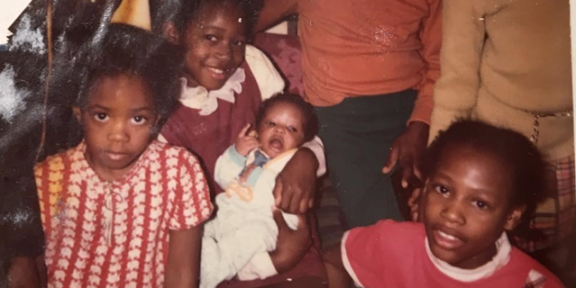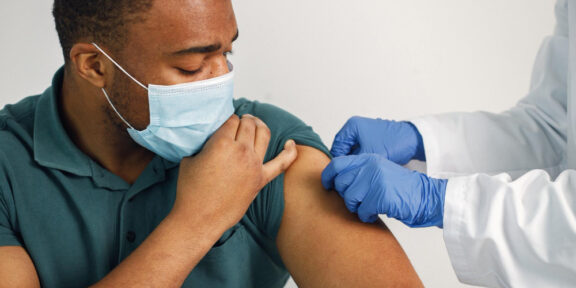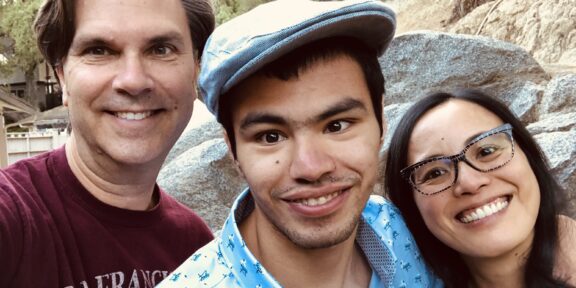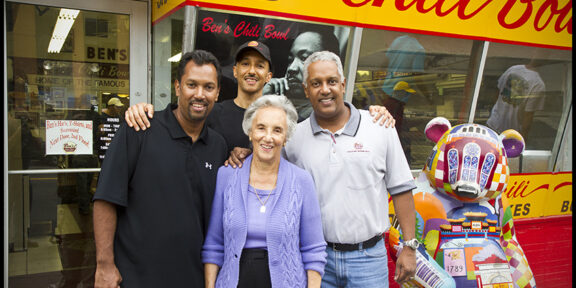In 2003, after overcoming many obstacles in her life, 28-year-old Khadijah Carter found out that she had to fight something unexpected.
While Carter was feeling perfectly healthy and making great progress in her career along with raising her six-year-old daughter at the time in Brooklyn, her health gave her a new testimony. When she felt the lump in her breast in December of 2002, she didn’t ignore it but went to her gynecologist to have it further examined. “I felt a lump and became immediately concerned because I don’t have lumpy breasts,” Carter recalled.
As a woman it is important to self examine and know your body. Monthly self breast exams are essential for women who are in-between visits to their doctor for every year or two for mammograms. But for women under 40 years old, like Carter, it’s not made a concern because younger women are the minority, along with men, in breast cancer cases.
According to the American Cancer Association, research shows that between 2002 and 2006, women age 20-24 had the lowest incident rate. The Young Survival Coalition (YSC), an organization that is dedicated to the critical issues unique to young women and breast cancer, says women between ages 15-39 make up 26 percent of all cases of cancer.
In January, after mentioning her discovery to the doctor he told her, “It’s probably nothing because you just turned 28 years old,” Carter said. During a three month process it took tremendous courage for her to even begin her battle. In a debate with herself that might have cost Carter her life, she made the decision not to miss her appointment at the doctor.
“I’ll be honest, I was debating on not going because I was like ‘I don’t think it’s anything,'” she said about her sonogram that was scheduled for the following month by the doctor.
This led to a biopsy in March and by April 2, 2003, she was given the news. “I’m sorry to tell you, you have breast cancer,” her physician told her. Reflecting on the three months that led to her diagnosis she says, “I thank God I went.”
Breast cancer is a tumor or malignancy in the breast that is caused by abnormal or defect cells according to Dr. Jacqueline Dunmore Griffith, radiation oncologist at Howard University Hospital. “In younger women it tends to be more aggressive,” she said.
“It took a while for me to be diagnosed because there was no sense of urgency,” Carter said.
The Fight Begins
Khadijah’s cancer was already in stage three when given the diagnosis. “Stage three is localized, but is more advanced,” Dr. Dunmore Griffith explained.
Now that Khadijah knew what she was up against, she was ready to do what she had to, not only for herself, but also her daughter. “I wanted to be there, see her walk down the aisle and get her college diploma, to see her get married etc,” Carter said.
“There was this little voice that told me ‘you’re not going to die.'” Carter claims this voice helped her to keep her composure while telling loved ones the news. “When people hear cancer it has the connotation of death,” she said.
Being in survival mode, she remembers thinking she needed to get well before her doctor recommended a mastectomy, the removal of the breast.
She was okay with getting a mastectomy in order to survive although she was concerned because she was young and it was part of what made her feel like a woman. “Not that I relied on my breast, but it was a big sense of my womanhood,” she said. “I breast fed my daughter, you know what I mean.” but she was assured that reconstructive surgery could take place later.
“So when they recommended a mastectomy, initially I was just like ‘Oh God’ but I said you know what I want this gone and they said they would be able to reconstruct my breast so I didn’t feel like I would be looking like a freak,” Carter said.
For many young women with breast cancer, body image is still an issue, even when getting treated. “When you’re a young woman having to deal with breast cancer surgery and treatment, there is significant impact on body image as you are still trying to identify with who it is you are as a young woman and what that means to the world,” said Stacy Lewis, vice president of Programming at YSC.
Carter was more resistant to chemotherapy-medicine, which is used to weaken and destroy cancer cells through pills or a thin needle in the arm. Despite the thought of losing her hair and all the medicine that would be in her body, she decided to “take the high road” after doing some research on other options. “Losing my hair wasn’t as traumatic as I thought it would be because I just shaved it when it started shedding,” she said.
Returning To Faith
As she started to get treatment she would often be the youngest person at the doctor. This discouraged her from joining any support groups because she didn’t want to be the youngest person in the room. “Sometimes it was tough, but I just stayed as positive as possible,” she said.
Instead of internalizing her emotions she took the opportunity to return back to her spirituality and faith by going “back to church, praying and reading the Bible more, writing poetry, painting, doing things that [she] had stopped doing so much.” This has continued to be strength for her as she was diagnosed with chronic cancer after it moved to another part of her body this past summer while living in Charlotte, NC.
She had a cough that was getting progressively worse so she went to the hospital and the doctor found a blood clot. They later found cancer.
When telling her family and friends about the re-diagnosis she found herself reassuring them that she would be okay. “I had to tell my sister calm down. We grew up in the church, we know the Lord, we have faith,” Carter said. “I don’t need the spirit of worry around me I need you to pray and have faith.”
After breaking the news to her daughter, who is now 13-years-old, Carter found comfort in her saying, “Mommy you beat it before, you’ll beat it again.”
Carter admits that she questioned God about the cancer coming back because she didn’t want to go through it again. “God I don’t want to go through this again,” she would say. Some days she would find herself getting back under the covers and laying there after putting her daughter on the school bus. She recalled praying repeatedly and hearing God tell her that she had to trust in Him.
Young Survival Coalition
Although Carter had her faith, eventually a friend would recommend to her the Young Survival Coalition, and they allowed her to not feel isolated anymore. While attending many of their events she would notice that she was still a minority, and not because of her age.
“I attended a lot of their events and noticed I was usually the only African-American woman there,” she said. This didn’t stop her from having fundraisers and awareness events for YSC, which would lead to her playing a bigger role in the organization as Diversity Manager.
“Eventually, the Program Manager approached me about running their diversity initiative, thus becoming the spokesperson for young women of color.” These women were not limited to African Americans, but Latinas and women who are immigrants also, making sure their particular voice and separate issues were made of note.
This would allow her to work with women from “urban” areas to around the world to make sure that there was diversity. “As the diversity manager, I worked with women as far as Kenya and other countries to ensure we had a diverse population.”
Lewis has worked with YSC for about five years and Carter has definitely left a lasting impression on her. “Khadijah is a wonderful young woman,” Lewis said. “She certainly touched my life.”
Continuing To Live
Throughout Carter’s battle, she hasn’t stop living. Even now after having a reoccurrence seven years later, she is preparing to attend graduate school in the fall. She has since moved back to New York and after taking a break, is working with YSC again.
Currently, she has to take pills every day for her chemotherapy treatment. “I started chemotherapy treatment immediately,” Carter said. It’s a matter of controlling the disease and insuring quality of life.” The chemotherapy has limited side effects and she feels and looks great, while also being able to still sing, which is one her ways of ministering in the church.
Even when talks of dating she says, “Right now I just need whatever is going to bring me joy and love.”
Overall she says, “I’m in a very, very happy space right now.”




